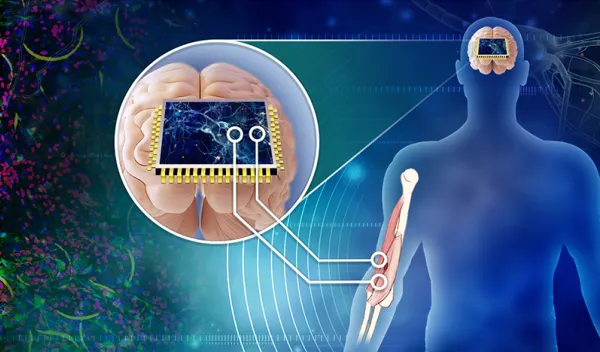
NSF invests $14M in bioengineered systems and ethical biocomputing research
The U.S. National Science Foundation has invested $14 million in seven interdisciplinary research projects through the Emerging Frontiers in Research and Innovation (EFRI): Biocomputing through EnGINeering Organoid Intelligence program. This investment fosters fundamental and ethically responsible research and development of organoid intelligence systems while also broadening participation in biocomputing research. Organoids are tiny 3D versions of engineered tissue that replicate important functions of natural tissue in vitro.
Organoid intelligence is an emerging multidisciplinary field focused on developing novel biological computing systems that emulate the flexibility, robustness and efficiency of cells and organs. With each project receiving $2 million, the seven research teams will use organoid intelligence systems to address current limitations in artificial intelligence technologies and revolutionize the capabilities of biological computing.
"NSF's investment will lead to biological computing with superior power and efficiency by harnessing the mechanisms behind complex biological behavior for smart systems," said Susan Margulies, NSF assistant director for Engineering. "Advances in biocomputing will open new opportunities for artificial intelligence, biotechnology and more sustainable computing."
These interdisciplinary projects will advance the understanding of biological learning principles and the design of better algorithms, networks and optical and electrical neural interfaces. Research teams will establish frameworks for safe, ethical and socially responsible biocomputing research. In addition, the teams will provide hands-on training for students and early-career researchers through workshops, mentorship opportunities for high school and undergraduate students and other activities to expand and diversify the U.S. STEM workforce.
The awardees and summary of each project are listed below:
- Integrated Human Brain Organoid Systems for Adaptive Reservoir Computing, University of Michigan — By combining neuromorphic computing theory and bioethical research, this project aims to advance neuromorphic computing capabilities by developing bioengineered organoid systems inspired by the human brain's structure and function.
- Implantation of Dense Associative Memory through CArdiac muscle cell-based Reprogrammable Bio-Oscillatory Neural Networks, University of Notre Dame — This project intends to construct reprogrammable bio-oscillator neural networks using cardiac muscle cells, providing a new synergistic approach to creating high-density and energy-efficient computing platforms.
- Reservoir Computer - Intelligent and Evolving Mechano-Reservoir Computing with Living Spheroids on Fibers, Virginia Tech — By harnessing the capabilities of 3D cell cultures on fiber networks, this project aims to develop a living reservoir computer that can learn, adapt and physically evolve, enabling high-efficiency networked computing.
- Neuron-Soft Organoid-Computer Interfaces for Long-Term Three-Dimensional Neural Network Computing, Harvard University — By integrating AI, neuron-soft bioelectronics and bioethical research, this project aims to create a bio-symbiotic system that mimics the scalability, adaptability and efficiency of biological neural networks capable of performing long-term, complex computational tasks.
- Spatiotemporal Learning in 3D Neuronal Organoids, University of Maryland — This project intends to develop and characterize spatiotemporally patterned computational networks in neuronal organoids, which can be extended to more complex systems and enable high-efficiency networked computing.
- Feasibility of 3D Biological Neurocomputers for Intelligent Biomedical Motor Control Systems, University of California, Irvine — This project aims to bioengineer 3D neural networks capable of interacting with and interpreting brain signals that underlie human motor control systems to advance the field of biocomputing and ultimately restore lost neurological functions.
- Teaching non-brain organoids how to think: Programmable organoid intelligence using neuronal networks implemented by gene circuits, Massachusetts Institute of Technology — By embedding cells that contain engineered neuronal networks, this project will develop liver organoids with functional intelligence that learn and adapt to toxins and infections in their environment.
The NSF EFRI program seeks to inspire and enable researchers to work across disciplines to expand the limits of engineering, address national challenges and enable U.S. leadership in cutting-edge technologies. More information about the program can be found on NSF's website.
